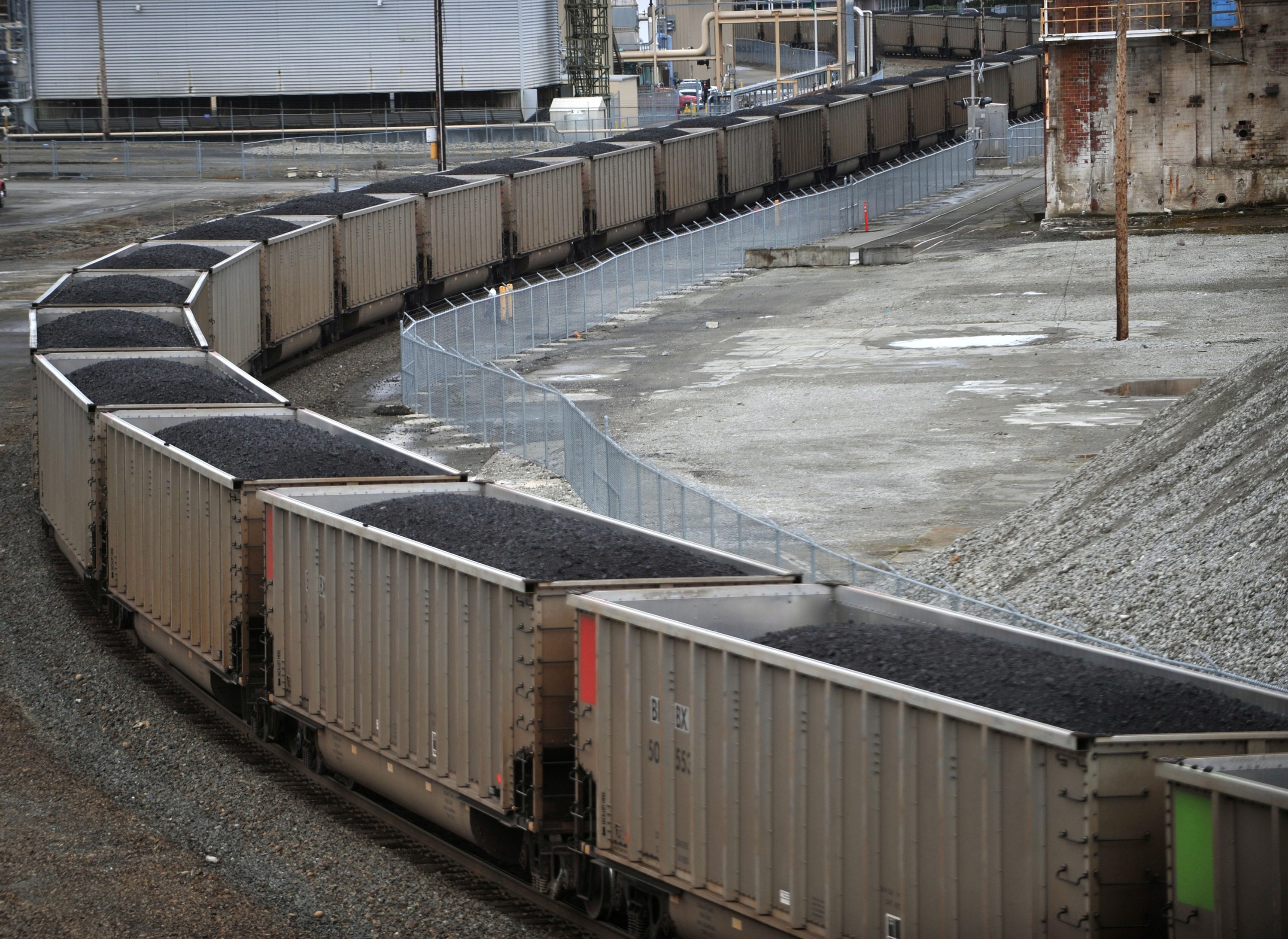The Millennium Bulk Terminals coal-export proposal in Longview would bring up to eight coal-carrying trains of 125 cars each through Vancouver every day, according to new information included in a state environmental review released Friday.
Release of the massive study is a major step for the project that was first proposed in 2010. It found, among other things, that the terminal “could result in a significant adverse impact on rail safety in Cowlitz County and Washington state.” But on coal dust, a major concern of terminal opponents, the review states: “Implementation of the mitigation measures described above would reduce impacts related to coal dust. There would be no unavoidable and significant adverse environmental impacts from coal dust.”
The Department of Ecology will be taking public comment on the draft environmental impact statement through June 13.
Millennium wants to ship up to 44 million tons of coal from Montana, Wyoming, Utah and Colorado to Asian markets every year from a rail-to-marine terminal along the Columbia River. The project would generate up to 135 permanent jobs, according to the review.
Information
What: Proposed Millennium Bulk Terminals coal-export terminal environmental review.
Where to find it: The draft environmental impact statement issued Friday can be found online at www.millenniumbulkeiswa.gov or at the Woodland, Longview, Kelso and Castle Rock libraries. Contact the Cowlitz County Department of Building and Planning at 360-577-3052 or the Department of Ecology to request a hard copy.
How to comment: Comments can be submitted online through www.millenniumbulkeiswa.gov, by mail to Millennium Bulk Terminals EIS, c/o ICF International, 710 Second Ave., Suite 550, Seattle, WA 98104, or in person at a public hearing from 1 to 9 p.m. May 24 at the Cowlitz County Event Center, 1900 Seventh Ave., Longview.
According to the draft environmental impact statement, the first phase could come online in 2020 with two trains per day, increase to five trains per day in 2021 and reach eight coal trains per day rolling through the Columbia River Gorge and Vancouver in 2024. Empty trains would be routed back east through Stampede Pass south of Seattle, though routes could be changed so as many as eight empty trains per day head back through Vancouver.
Overall, the review released Friday takes a cautious approach to the contentious project, laying out potential risks and finding mitigation that “would not completely eliminate significant adverse environmental impacts resulting from construction and operation of the (terminal).”
Environmental groups and others have been vocal in their opposition to the project, and on Friday they said the Department of Ecology’s review is mostly on their side.
“The review’s findings confirm what the public has said for over six years: This project has significant, unavoidable impacts — from toxic coal dust to greenhouse gas emissions to traffic delays,” Jan Hasselman, attorney for the Power Past Coal Coalition, said in a statement. “The bad news is the review falls short, relying on unproven mitigation. Now is the public’s chance to weigh in to say no to coal export in Washington.”
Supporters have also been outspoken, with some expressing irritation at the pace and demands of the state review.
“Today’s release of the draft (review) for Millennium Bulk Terminals, a simple dock and rail yard expansion project, is the latest step in an excessive evaluation that has already dragged on more than twice as long as it took to actually build Seattle’s CenturyLink Field,” said Alliance for Northwest Jobs & Exports spokeswoman Kathryn Stenger in a statement. “The unprecedented demand to require Millennium to mitigate greenhouse gas emissions that occur on the other side of the globe will create a harrowing process that should terrify any Washington manufacturer or shipper looking to expand its facility.”
The economics of the terminal have been thrown into question, however, given that Arch Coal, a major backer of Millennium, filed for bankruptcy this year. The coal industry in general suffered a heavy hit in recent years as demand waned and prices plummeted, and several coal projects have been delayed or cancelled.
Some groups say that’s a success for the climate and environmental causes.
“It’s fair to say there was a significant economic case made five six years ago when these projects were proposed, but at the moment they have the same relevance as a typewriter factory or a Kodak film processing facility,” said Ross Macfarlane, a senior adviser with Climate Solutions, during an environmental telebriefing earlier this month. “This is significantly grim for coal exporters but good news for some of us worried about climate change.”
Supporters of the terminal point to the permanent and construction jobs the project would create.
“Working families in Washington state have been waiting for more than four years already,” Lee Newgent, executive secretary of the Washington Building & Construction Trades Council, said in a statement. “The Millennium project will bring much-needed, family-wage jobs to the people of Southwest Washington.”
Unlike the oil terminal proposed for the Port of Vancouver, state law does not require the Energy Facility Site Evaluation Council to oversee the Millennium project. Instead, the Department of Ecology and Cowlitz County are leading the environmental review and various state agencies, rather than a single entity, will decide whether to issue permits once the environmental impact statement is finalized.
A separate, federal environmental review by the U.S. Army Corps of Engineers is expected later this year.




